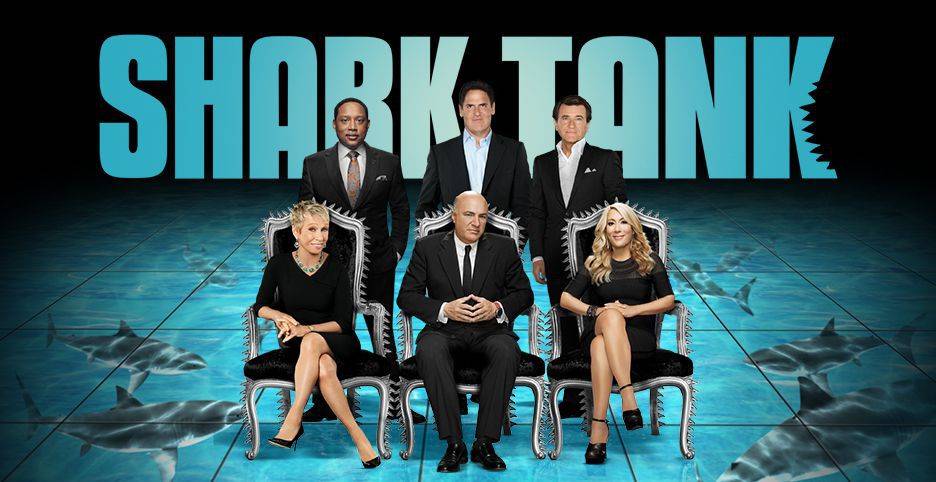Exclusive interview for SPINOFF.COM with Jay Berkman a financial industry veteran and a serial entrepreneur, chief operating officer at Prospectus.Com, investor offering prospectus and private placement memorandum writing services firm, that helps entrepreneurs and spinoff founders.
SOC: Mr. Berkman, thank you very much for dedicating your time to this interview. We would like to start with the overview of your company. Could you elaborate on the story of its creation and the team?
Jay Berkman: Our formation was inspired consequent to nearly 2 decades in which the senior members of our firm - all of whom have spent more than 15 minutes in various parts of the finance, investment banking and capital market space - where we've provided entrepreneurs from both start-up firms as well as fast-growing revenue producing companies with consultative guidance as to the best practices for presenting their respective opportunities to professional and sophisticated investors. That guidance included business plan preparation, investor presentation material as well as building investor offering documents for those advancing private placements as well as public offerings
SOC: We had a glance on your website and found a lot of positive feedbacks on your company online. Could you please describe your services?
Jay Berkman: We're best viewed as a consulting firm that provides bespoke 'value proposition framing' as well as a para-legal firm that focuses exclusively on securities offering initiatives. One side of the firm is focused on business plan, aka Information Memorandum preparation and supplementary investor presentation materials and works in concert with our in-house investor offering documentation team - which is overseen by securities attorneys that are captive to us, as well as a broad network of securities attorneys domiciled in the US, EU, PacRim, Middle East and parts of South America. In addition, we're well-positioned to make introductions between entrepreneurs and professional investors: meaning boutique private equity firms, venture capital hubs sponsored by leading corporations as well as other professional investors we know. It should be clear that we are not a licensed broker-dealer and we do not earn 'success-fees' in connection with capital raises. We make these introductions as a professional courtesy to clients and institutional investors that we have long-standing relationships with.
SOC: As you know the core of our operation is a collaboration with spinoff founders. This activity involves planning, analysis, product development, legal and IP consultations, investor selection, evaluation of the company etc. Could you describe your potential services for spinoffs and in what way Prospectus can assist spinoff founders in developing their business?
Jay Berkman: Firstly, our value adds starts with helping start-up founders frame their value propositions in ways that will resonate with prospective investors. Having worked with literally tens of dozens of very sophisticated founders across nearly every industry sector and silo, we've found a common denominator: an overwhelming number of company founders who have developed innovative or disruptive solutions do not have extensive experience building and advancing commercial business enterprises. Inventing a novel application or medical device or any other product is great, but unless that entrepreneur embraces a disciplined approach to monetizing their idea, too often those innovations die on the vine. In many cases, our job is to be a business enterprise mentor so that smart ideas can be brought to market.
SOC: How would you describe a perfect candidate for your services? What should spinoff founders prepare before they contact you in order to speed up the development of their companies?
Jay Berkman: Within the context of the medical devices, biotech or medtech sector, we've worked with an assortment of truly brilliant folks whose academic and scientific pedigrees put them at the forefront of their specialty areas. But many of these folks have limited experience as versatile entrepreneurs who inherently understand what is required to bring a product to market and operate a serious business in a profitable way. We sometimes refer these folks as Mad Scientists - people who are geniuses in one area, but lack the experience or where- with -all to connect the tag line to the bottom line. Many entrepreneurs like to believe their idea is worth tens or hundreds of millions of dollars and when raising money, they place un-supported enterprise values on their company without having all the necessary pieces of the puzzle to justify their investment offering. Many haven't assembled a team that brings diverse skillsets to the equation or have not fully researched the various channels, deal structures and strategic partners that could bring them to the next level--and worse still, many think they execute a business plan simply by having an outsized war chest. It doesn't work that way- explains why so many initiatives become a heartbreak for folks who have spent years building a stadium only to discover they can't sell tickets.

SOC: As you know, not all the spinoff founders have enough experience in starting the company and they might feel vague at some stages. What advice and warnings you might give them in the area of your expertise? What mistakes can they avoid cooperating with Prospectus?
Jay Berkman: 1. Small pieces of big pies are better than big pieces of a pie that nobody wants to eat.
2. Having a credible team in place is crucial - by a team I mean a well-rounded group that includes people who have been there and done that within the framework of product design/development, marketing and sales, a seasoned chief operating officer and business development-client facing veteran who fully capable of addressing the inevitable tough questions that smart investors will inevitably pose. Every founder should be coached in investor presentation best practices and be able to address 'what if this goes wrong, what if FDA slows us down, what if our manufacturing facility gets shut down’
The last one: every member of the team that is in a client or customer facing role should be working from the same playbook as far as company ethos and deliver a consistent message. As far as the mistakes that can be avoided: delivering a presentation that has not been carefully reviewed by at least 2 other senior members of your organization - including the marketing/business development executive. I can share a few ‘nevers’, that would definitely be useful to rely on. Never engage a 'money raiser' that does not have vetted references. Never have a single point of failure. Never distribute an investor offering proposal that has not been prepared or reviewed by a professional. Not enough people realize that there is inevitably an investor that comes down with buyer remorse syndrome and the first thing they/their lawyers will look to are the agreements that were put into place. Never send an external email after 6 pm. Never make a critical decision after late afternoon or on a weekend.

SOC: How long, in your experience, a spinoff company need in order to complete necessary fundraising, and what factors influence the success of the fundraising?
Jay Berkman: Great question. I only wish there was a metric or a statistic that could provide a reliable framework to manage expectations. Obviously, the larger the task, the more challenging it becomes to assemble a broad investor group. Having a prominent 'lead investor' at the outset will often, but not always, expedite a raise. Some deals can be effected inside of 60 days, most typically require 3-4 months. If after 4 months there's been little traction, there needs to be a complete 360 evaluation that looks at who has been approached and what the negative feedback has been.

SOC: Money is a critical issue for the rising companies. Spinoff founders take into consideration all the expenses. One of the expected questions from them would be what budget should they consider for Prospectus services?
Jay Berkman: We're positioned to be an aggressively-priced competitor to law firms-which, by the way, is not required to prepare a regulatory compliant offering document. We've heard fees for preparing a PPM range from $12k-to as much as $40k-$50k. We're at the lowest end of the spectrum and we can provide the exact same deliverable that any securities law firm can provide. In point of fact, many of the projects we administer are outsourced or sub-contracted to us by company lawyers and/or law firms.
SOC: You position the company as a consulting firm; in your opinion consulting is a single time action or it's a constant monitoring?
Jay Berkman: There's no such thing as a single action when it comes to providing consultative guidance and it generally includes a series of discussions. It includes research, it includes providing ongoing guidance in the course of assisting companies and particularly founders becoming alternated into the best practice in terms of how to execute a business plan as well as how to properly raise money from investors so that the initiative can be successful.
SOC: Thank you so much, that's very detailed. How do you evaluate your prospective client? Do you have a specific algorithm or it differs from case to case?
Jay Berkman: I think that there is a basic framework that whether you're in the medical device Medtech healthcare fintech consumer product you can go across any spectrum of business enterprises. There is in my view the best practice approach to framing the value proposition within the context of the market that somebody is attempting to penetrate or leverage. And there are, certainly, basic guidelines in terms of how not necessarily the order in which you are explaining your value proposition or your added value, but there are certainly rudimentary basic requirements to framing whether it is the business plan and the comprehensive nature of many business plans within the scientific space which addresses intellectual property, clinical data, regulatory approval, certification processes, manufacturing, best practice, go-to-market strategies. There one would argue that every industry has its own nuance but there are, in my opinion, standard elements that every entrepreneur needs to take into account.
SOC: What piece of advice would you give to spinoff founders, who have already started the process of creating their company and those scientists, who only consider turning their idea into a product?
Jay Berkman: Without intending to sound cute, watch Shark Tank-and pay attention to Kevin O'Reilly. Licensing IP and referring to a credible organization to bring your product to market and otherwise collecting mail-box money is often the most efficient and effective approach vs. shouldering the tasks of manufacturing, building a distribution channel and administering the often challenging tasks of managing the operations of any business. Building an organization inevitably takes longer, costs more and includes an assortment of obstacles that many very smart people have not calculated into the equation. Again...small pieces of big pies are often much more profitable.

SOC: Any business is either successful or fails. In your opinion, if a scientist or entrepreneur failed once should they try again to build the company?
Jay Berkman: Of course! People should always try again. If one is not making mistakes and encountering a short-term failure that shouldn't preclude them from looking back doing a full 360 to analyze where the mission failed and how to improve upon it. When it comes to working with sophisticated investors there is a thesis that you only get one swing at the bat. That thesis is slightly flawed because particularly within the science space the healthcare space etc. There are going to be failures and obstacles for any number of different reasons whether it's product design whether it's manufacturing whether it's regulatory approval. Many of those things can be fixed only if the founder understands where the obstacle is and how to overcome that obstacle to repair whatever damage might have been incurred. No different than somebody being diagnosed with a theoretically life-threatening ailment. Those can be fixed especially in today's world. If you fail once, try again.
…


